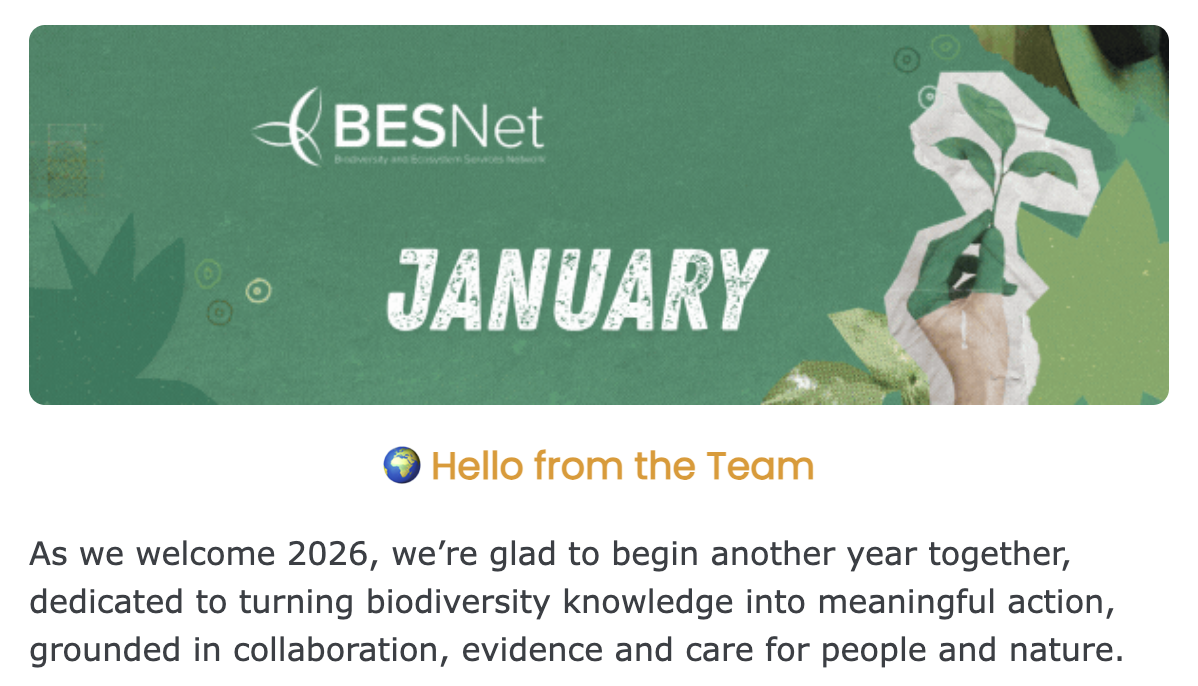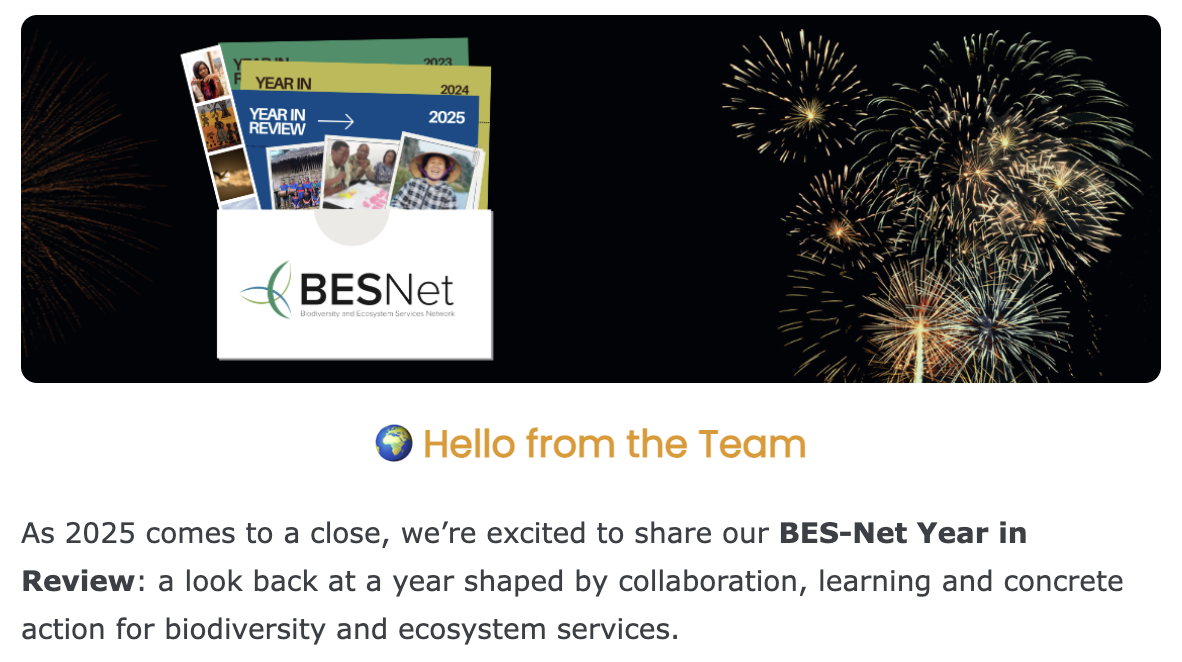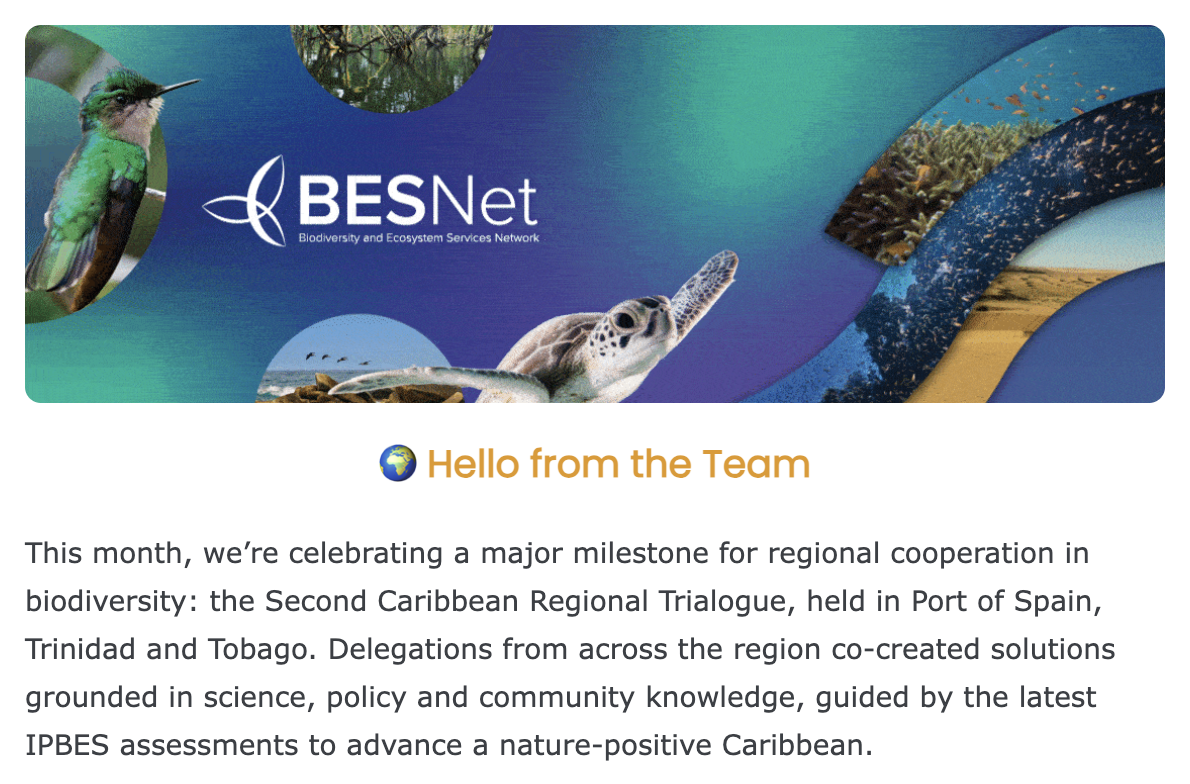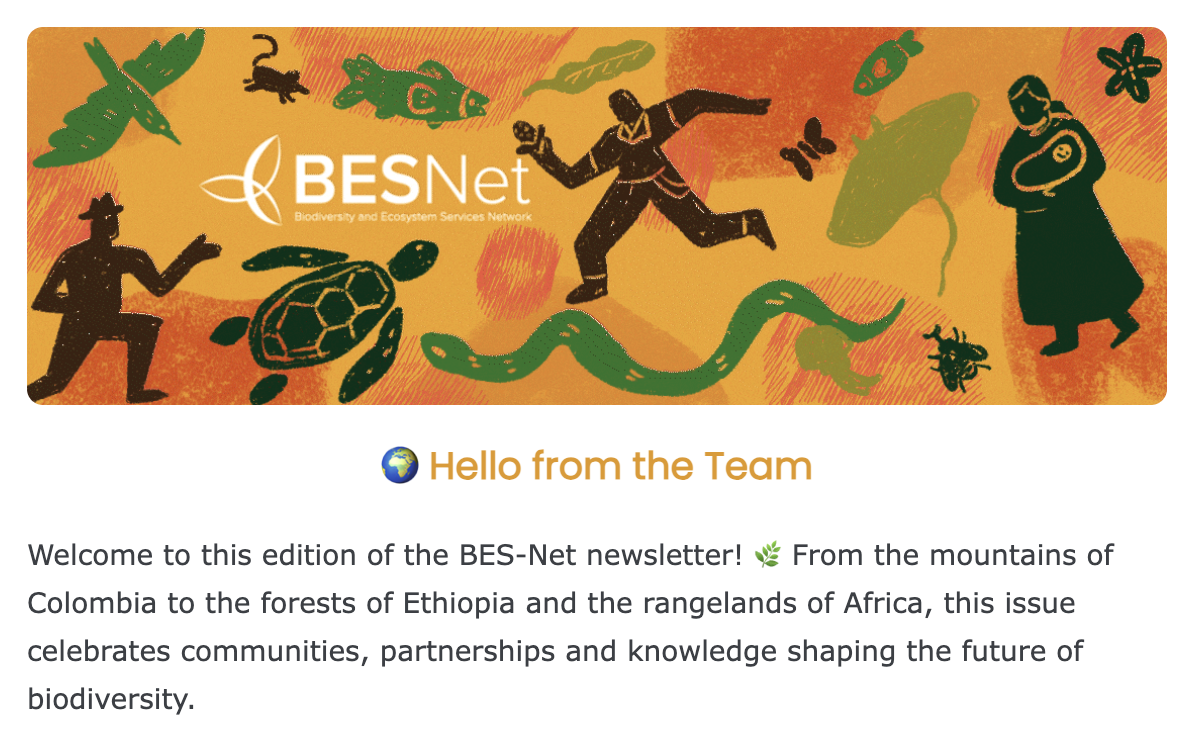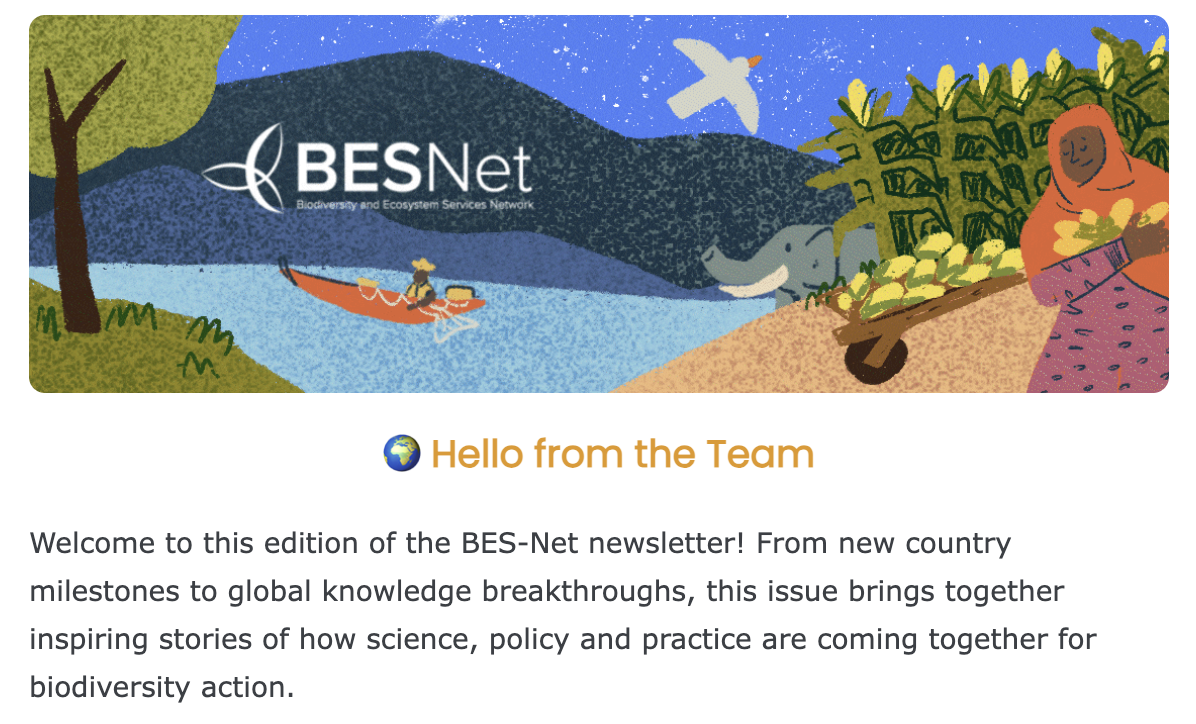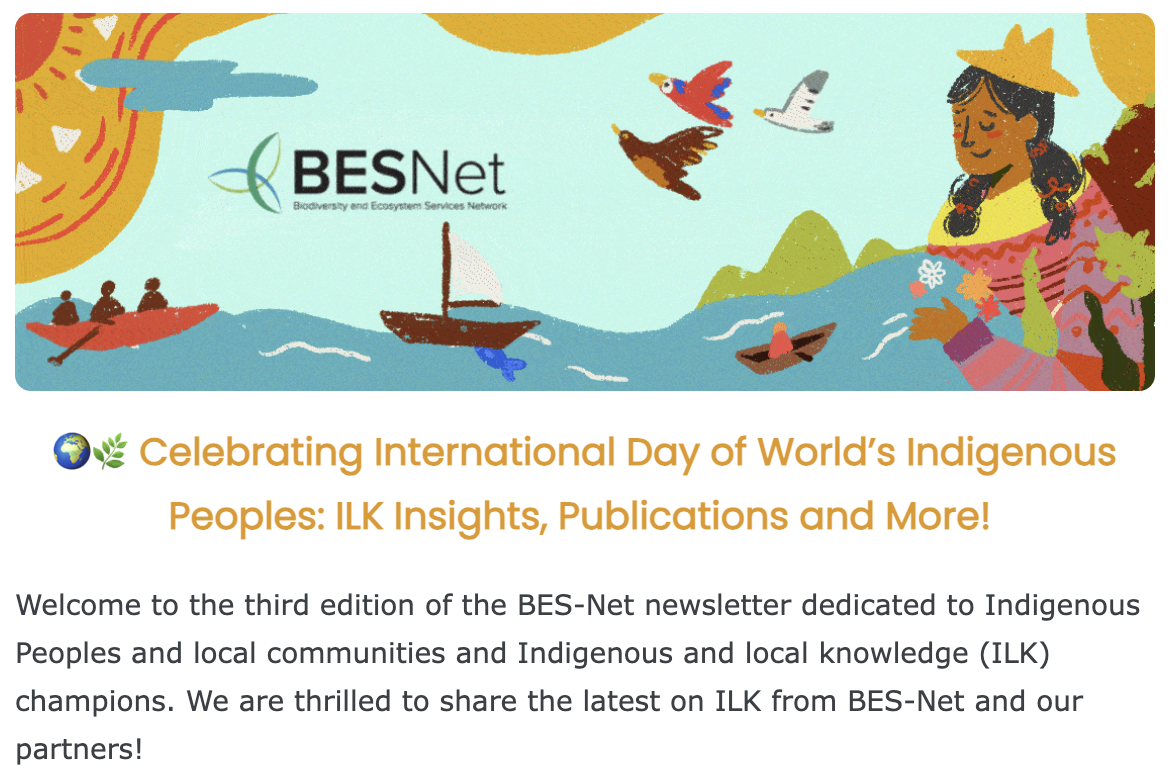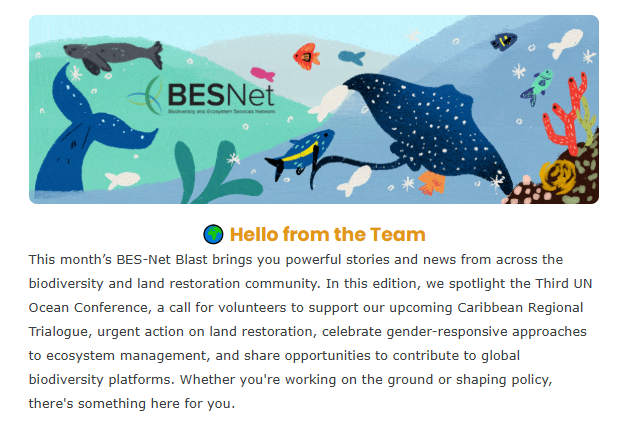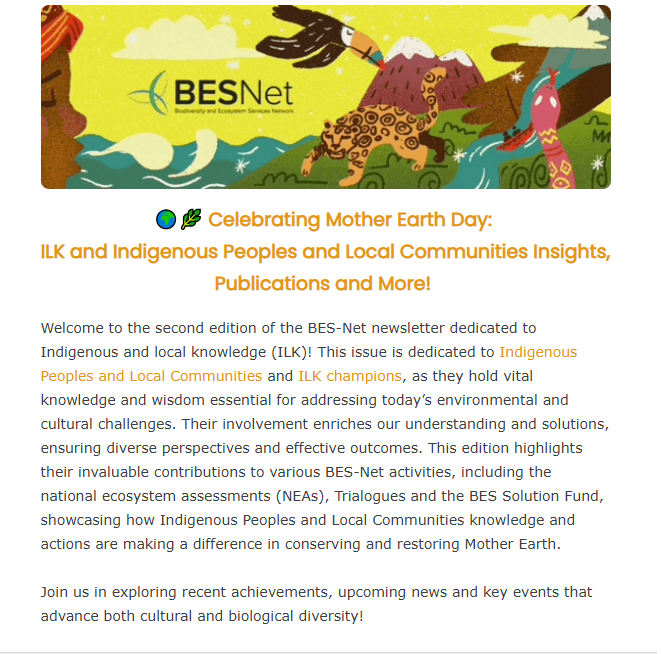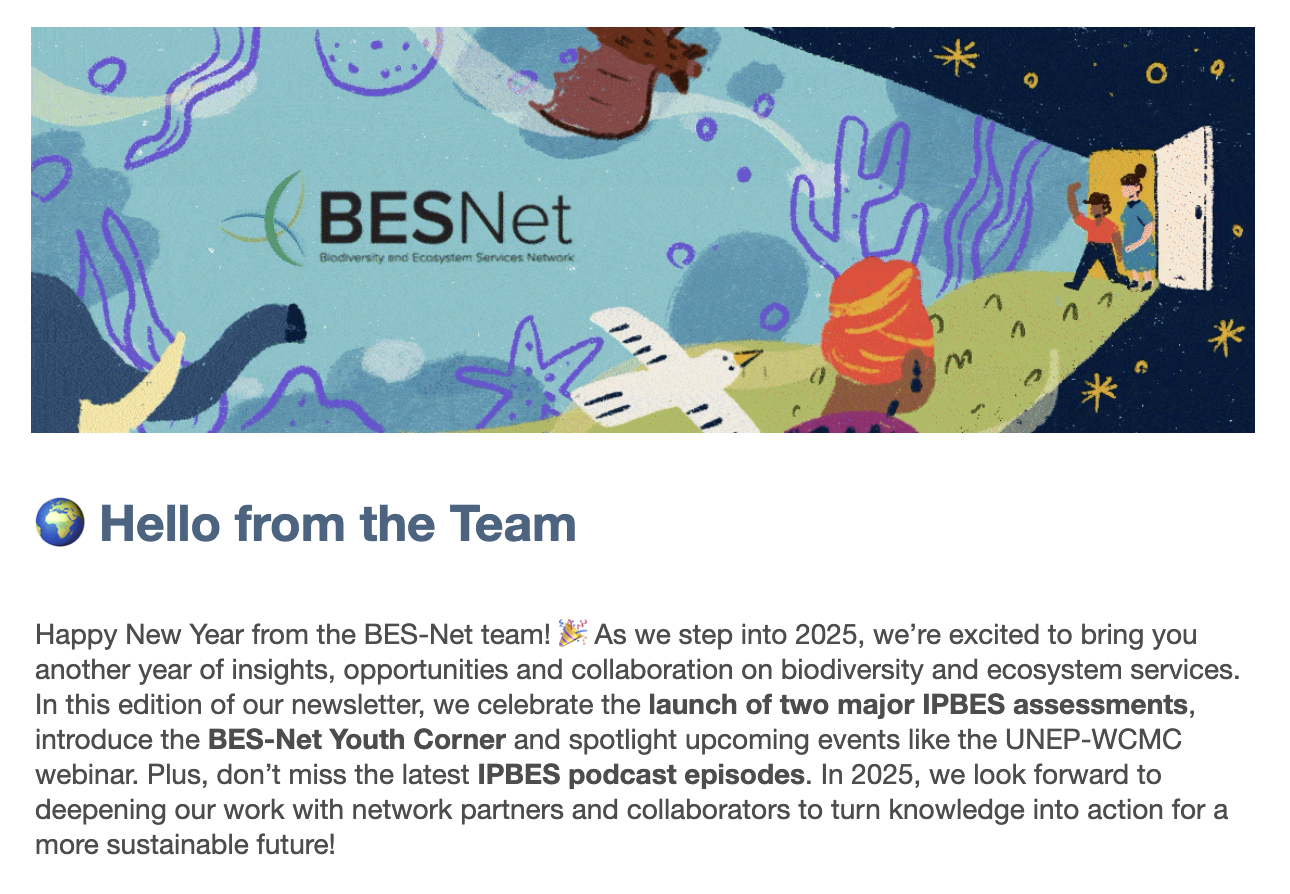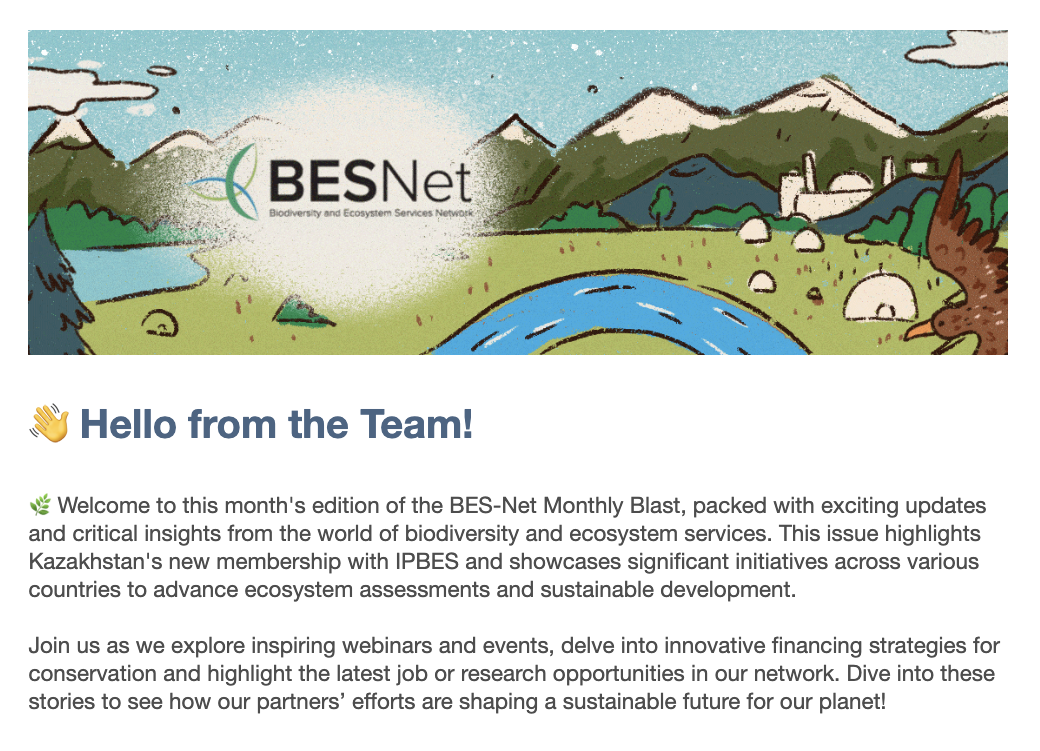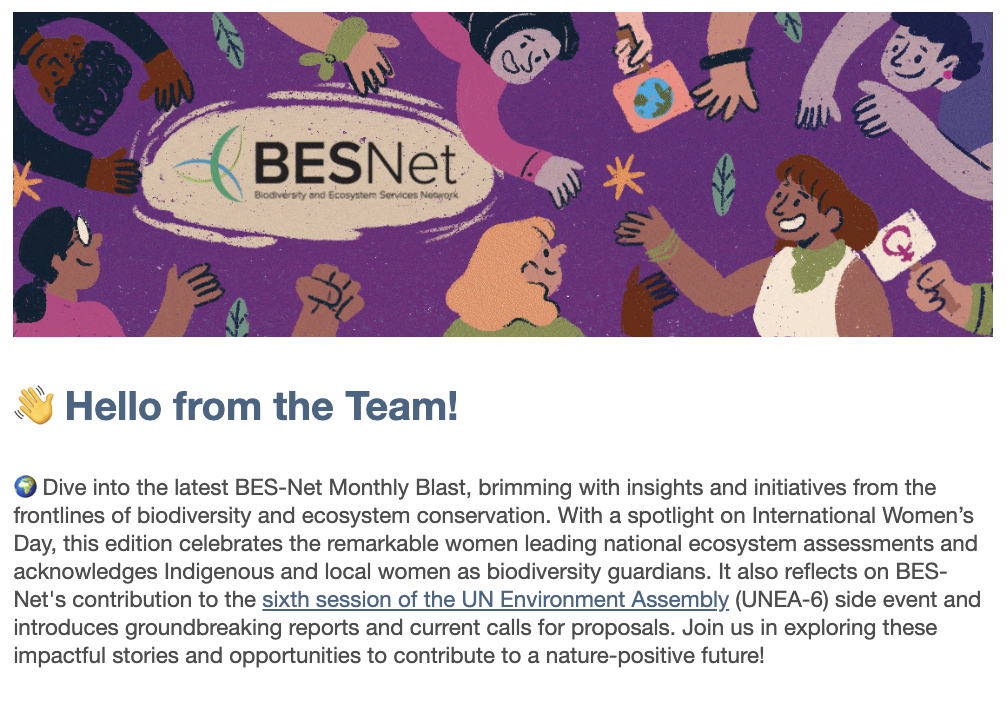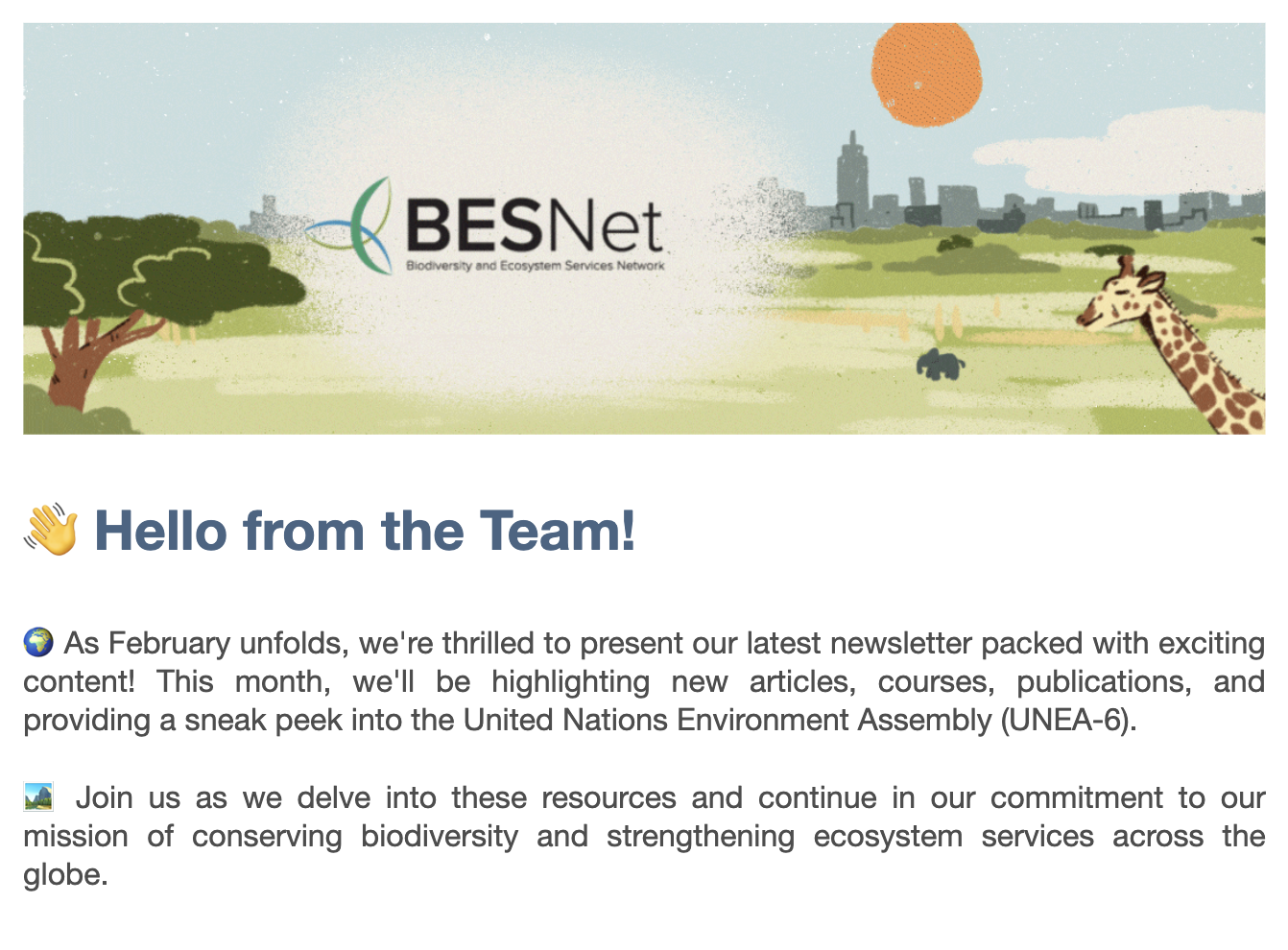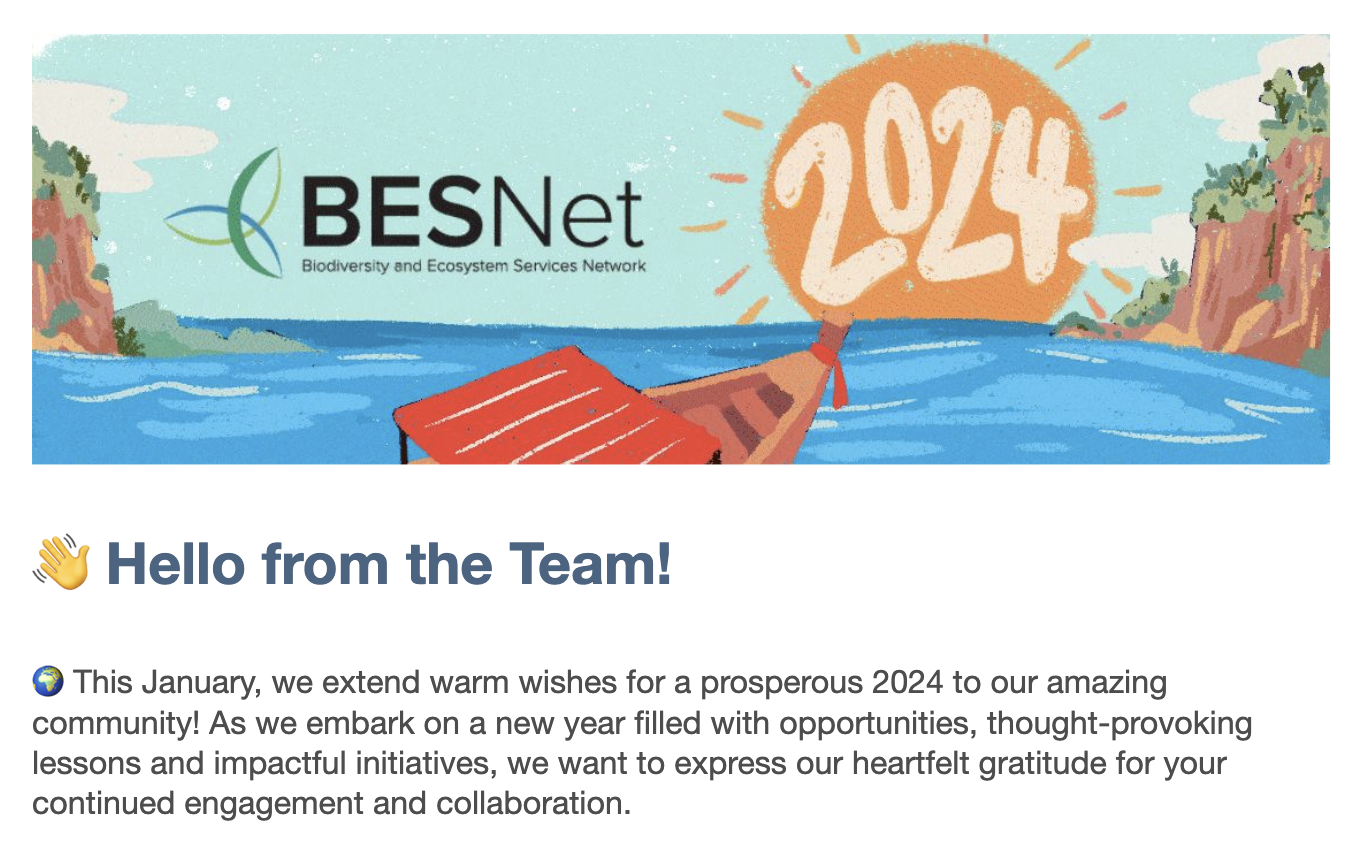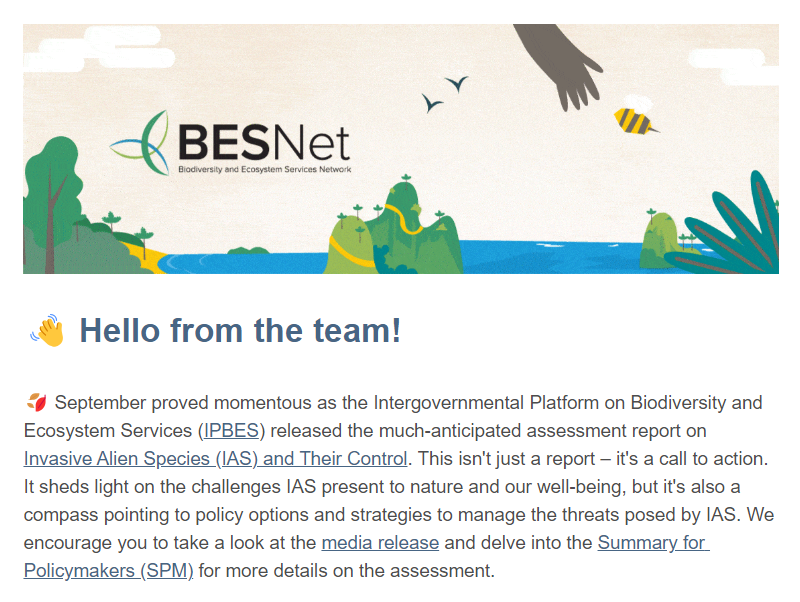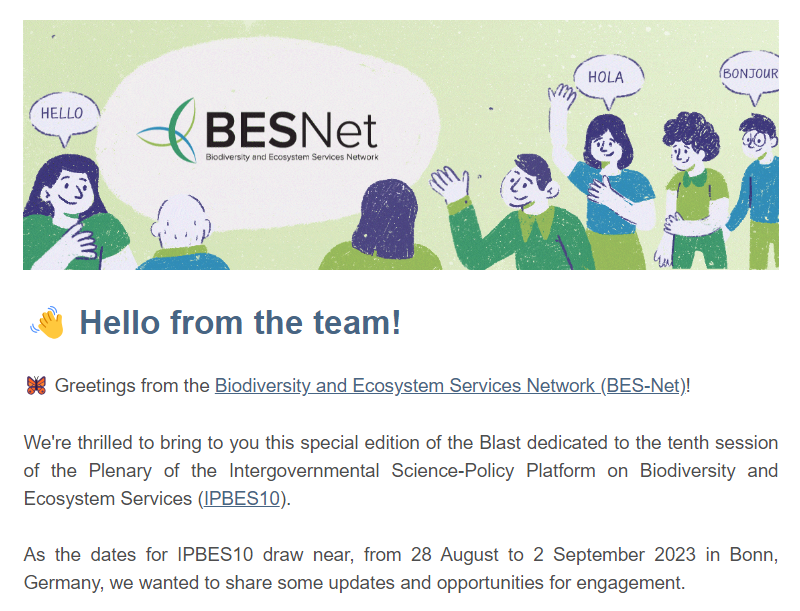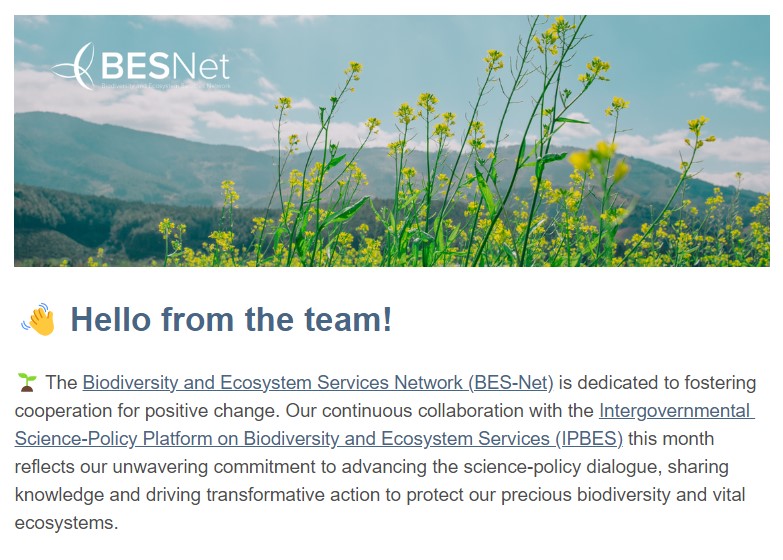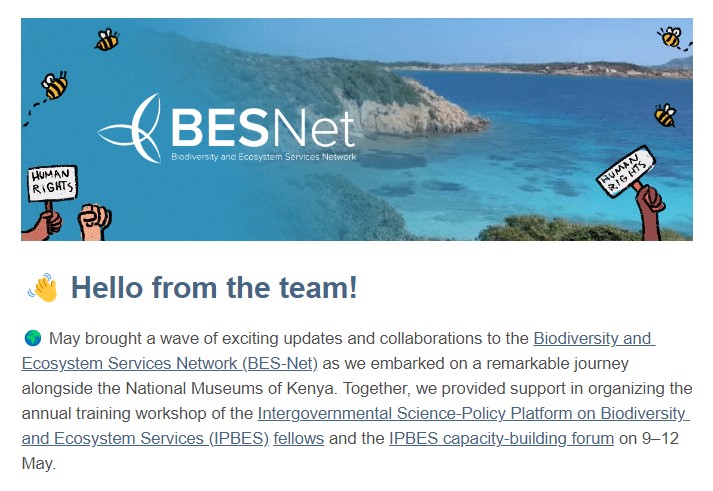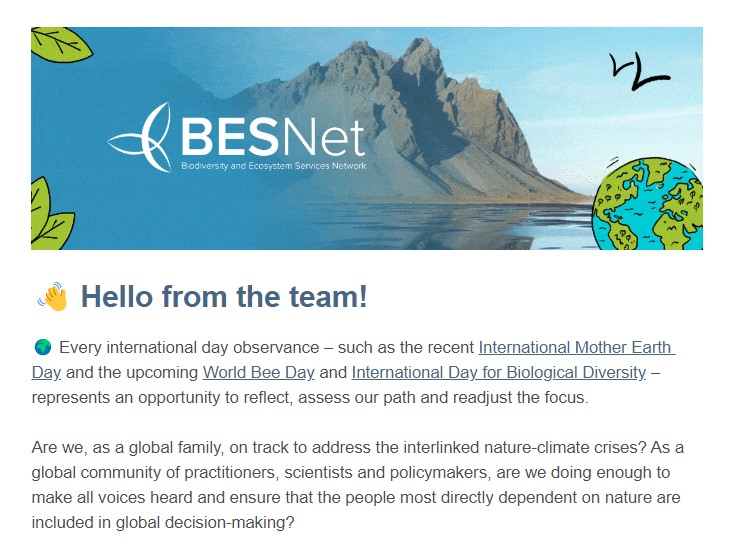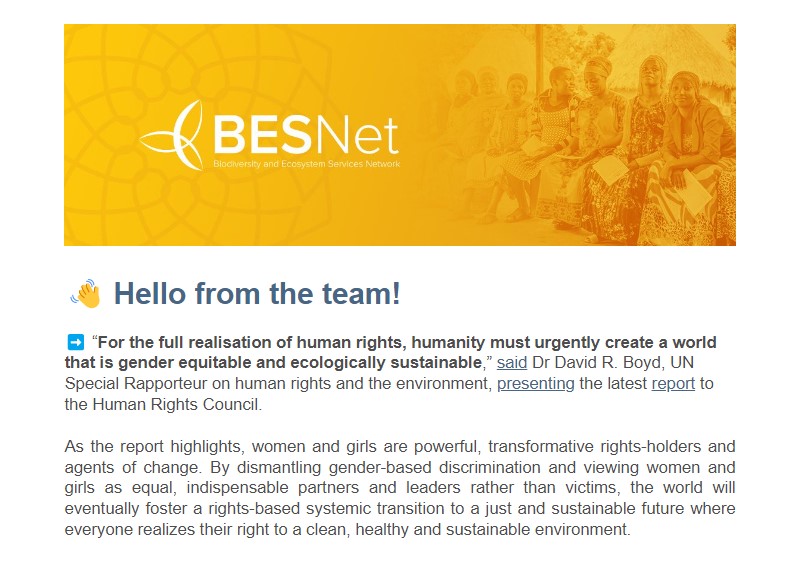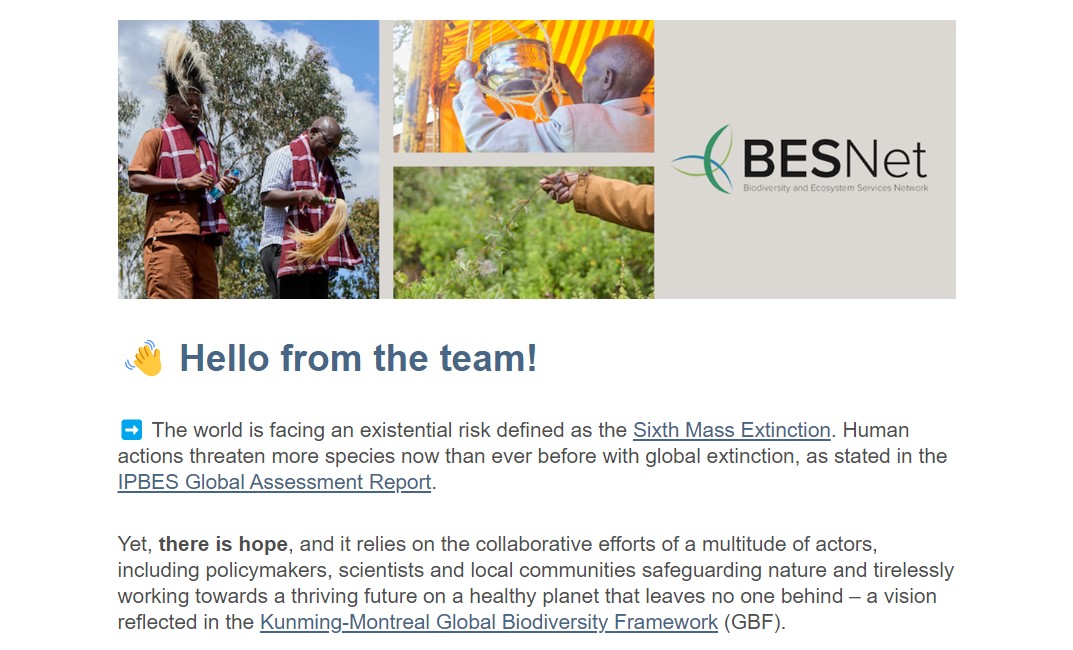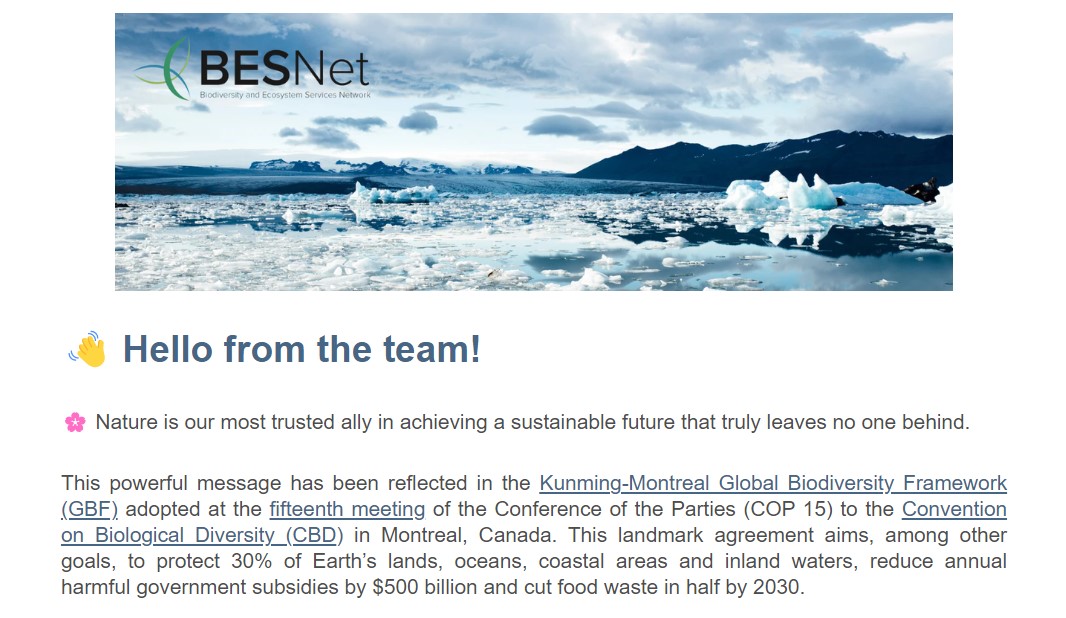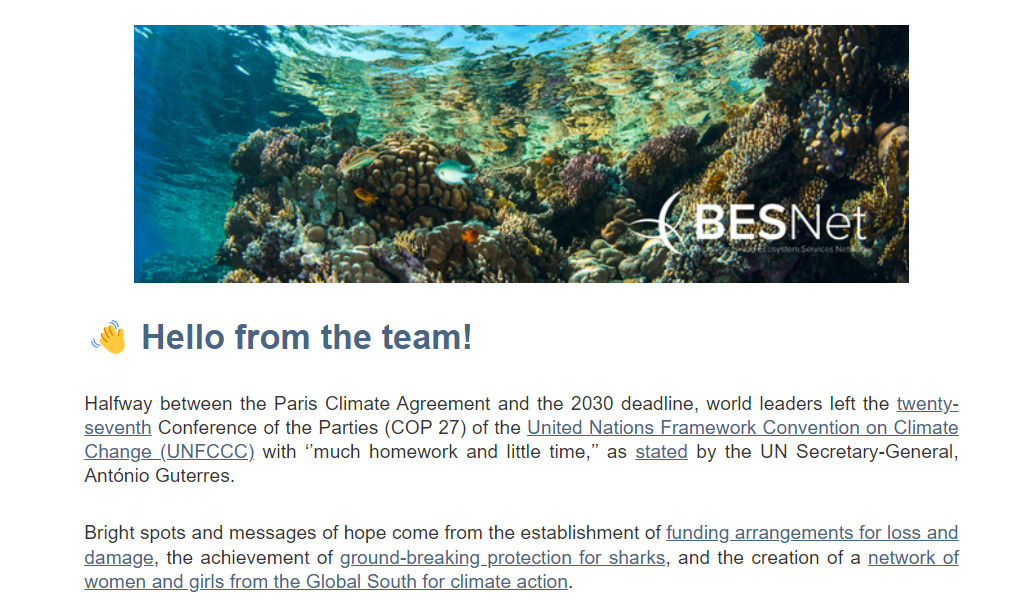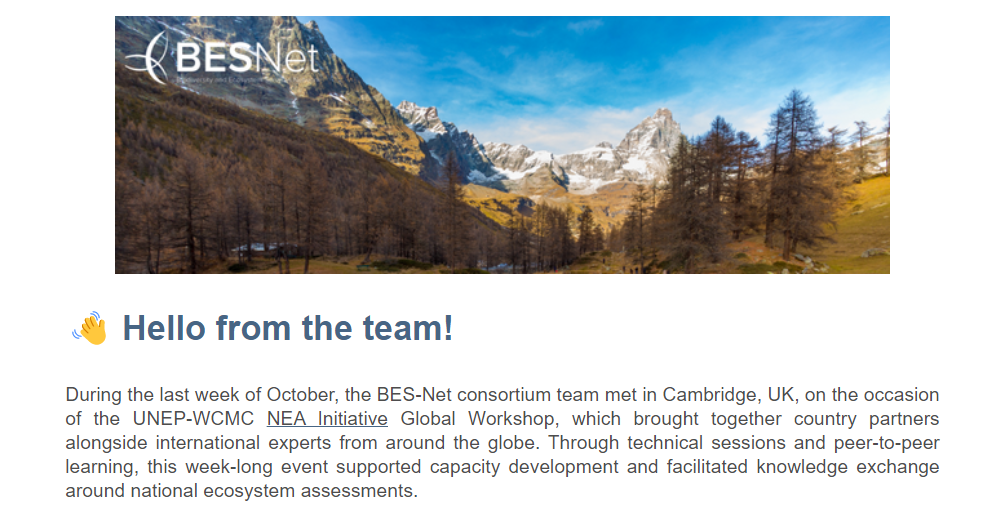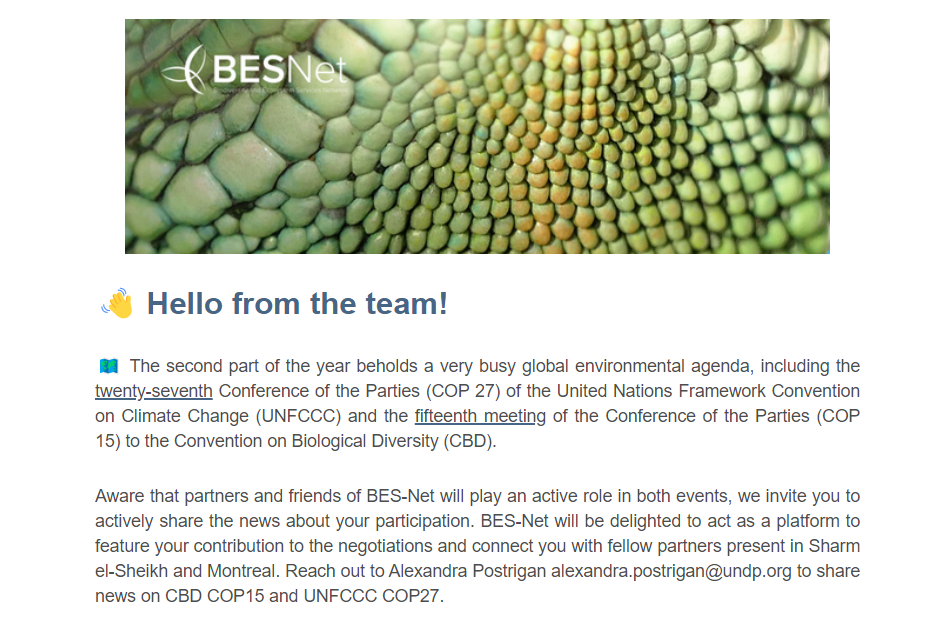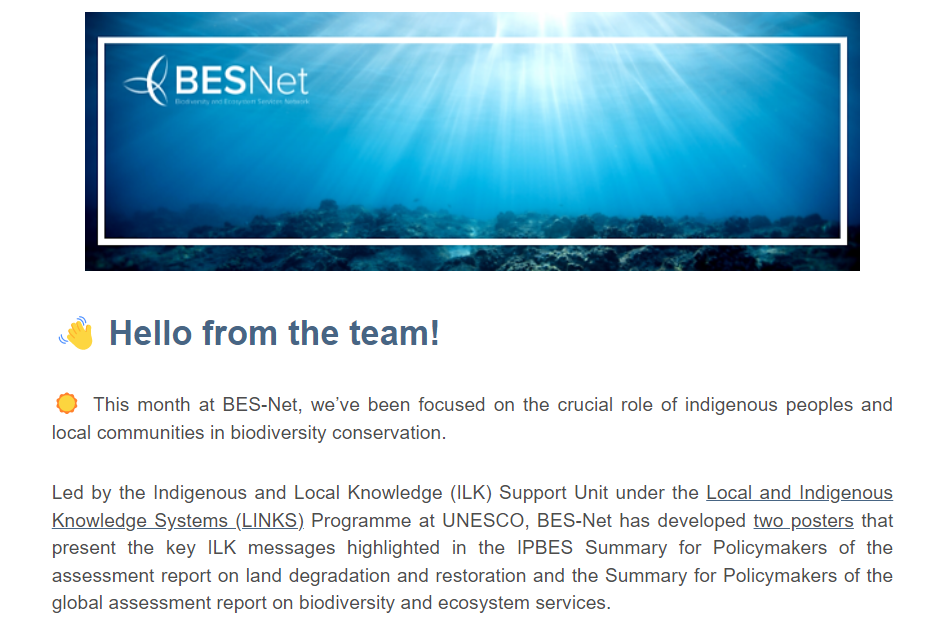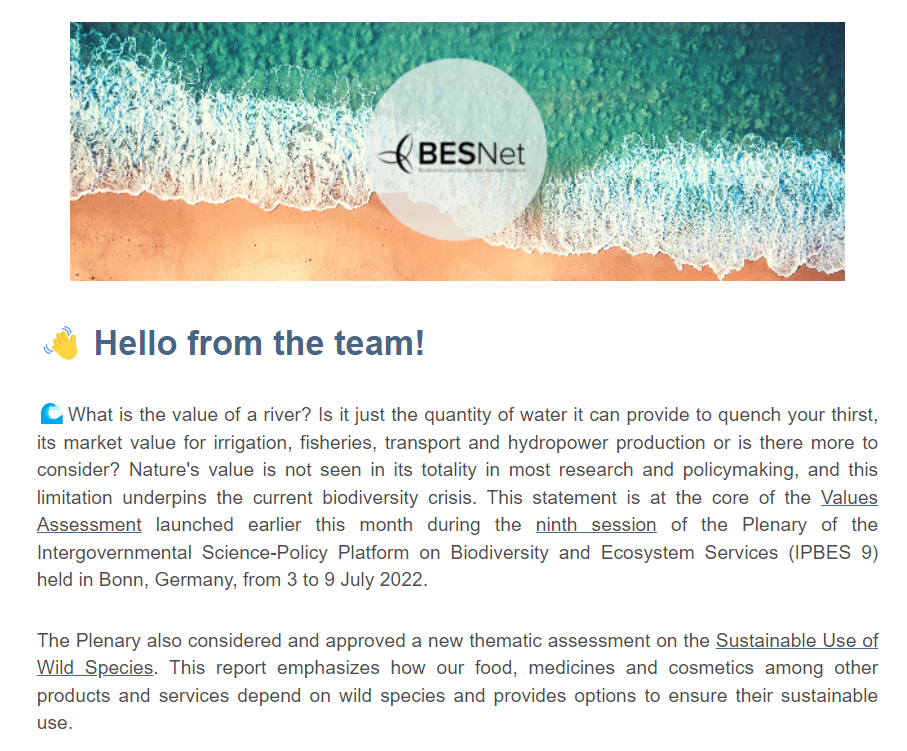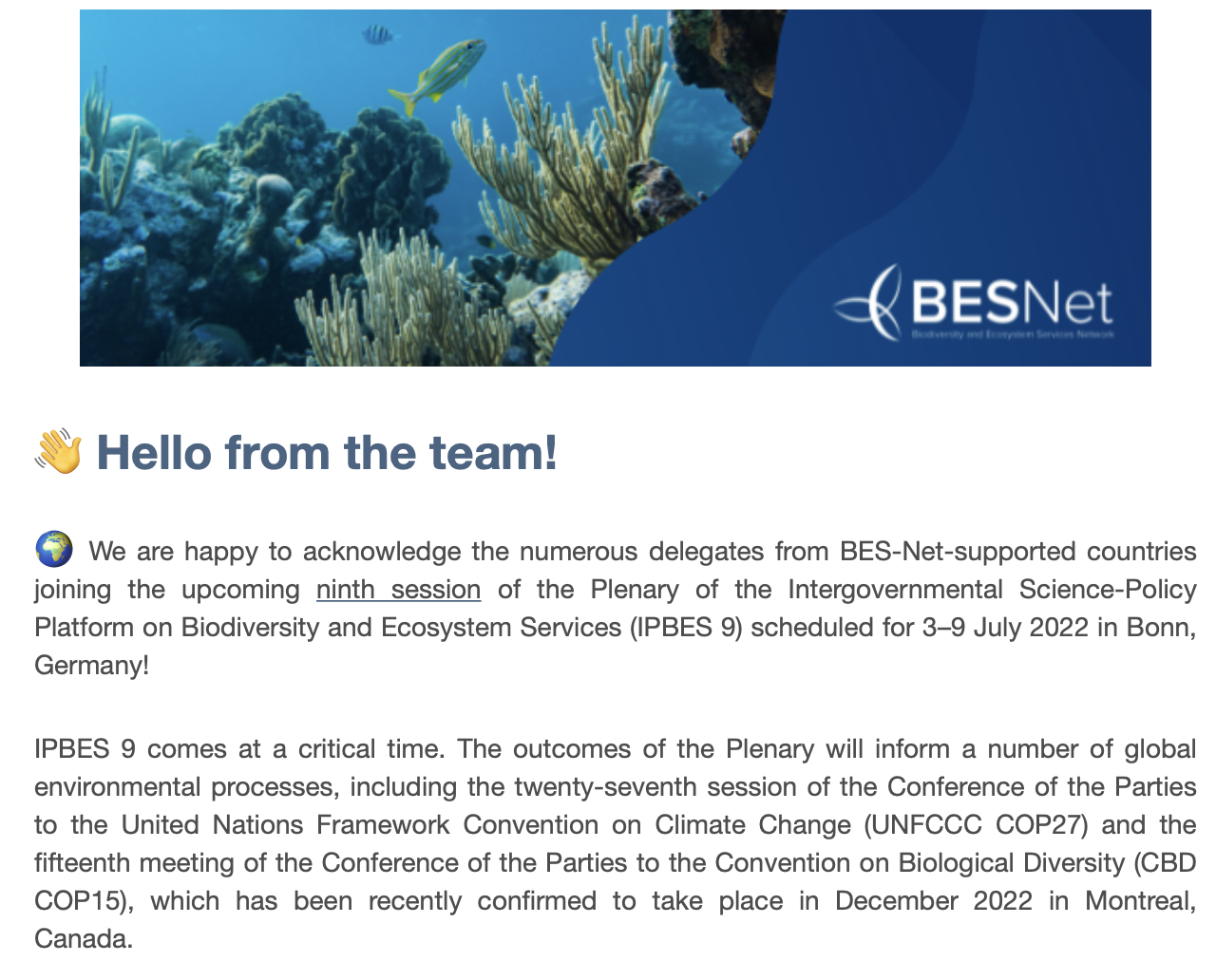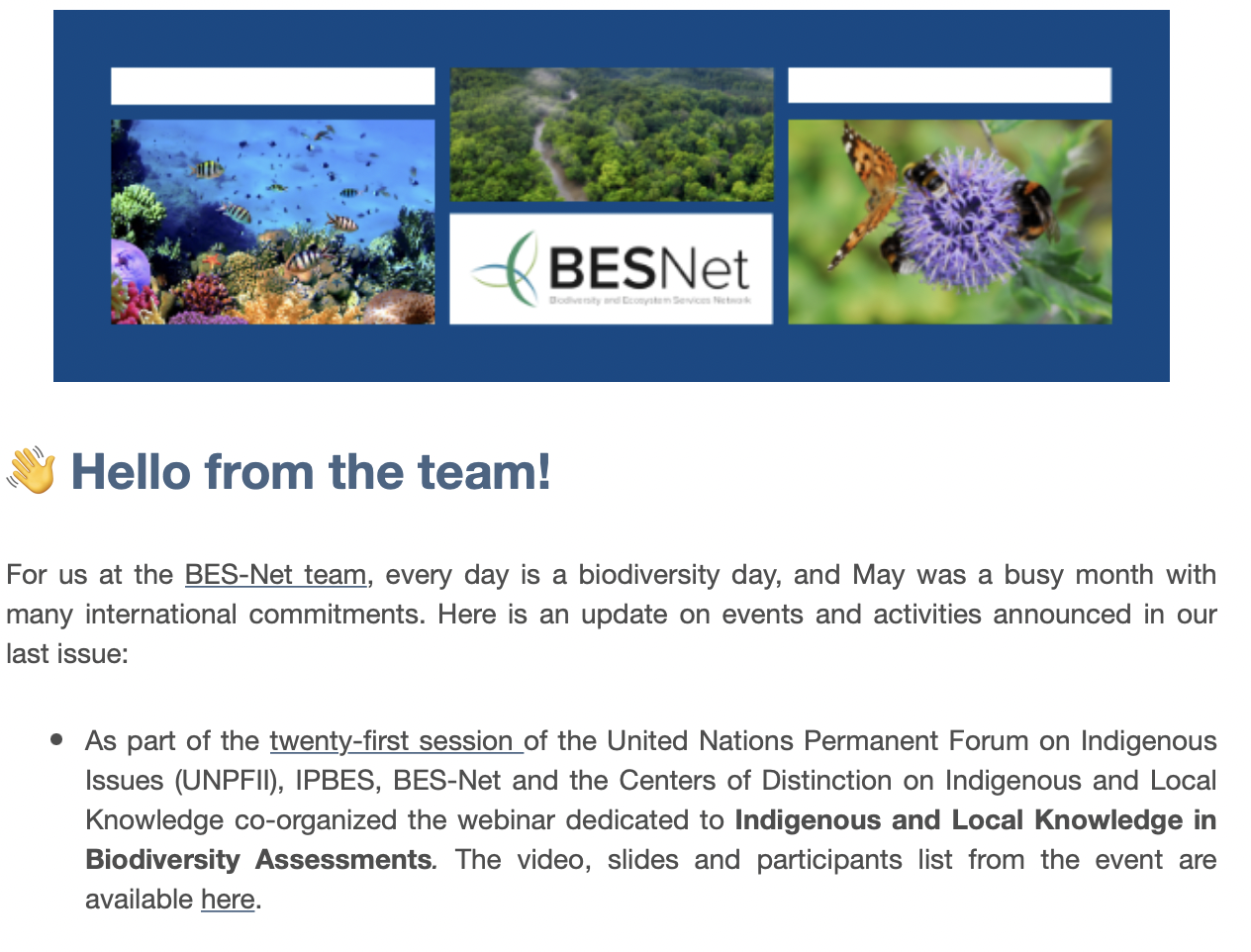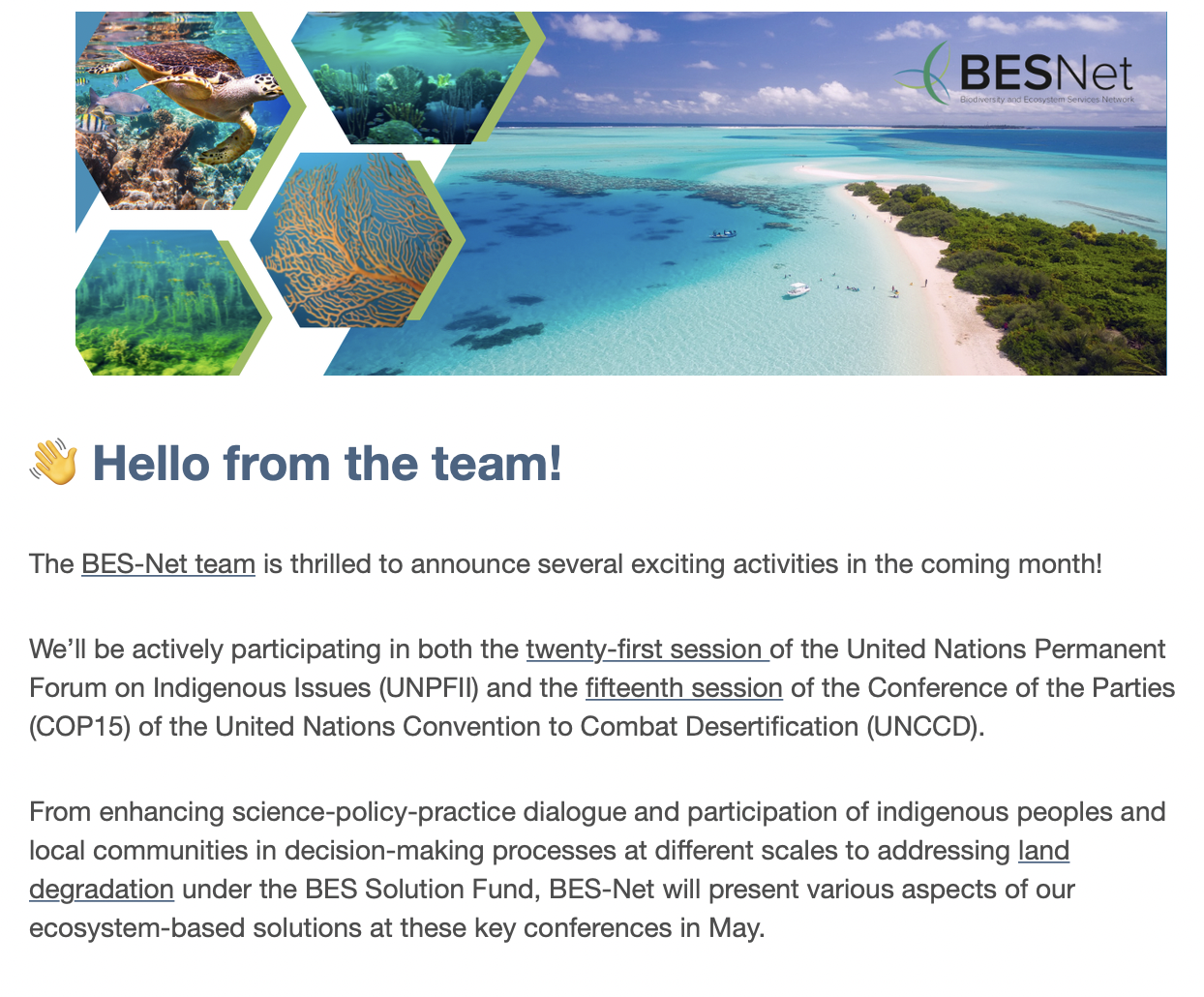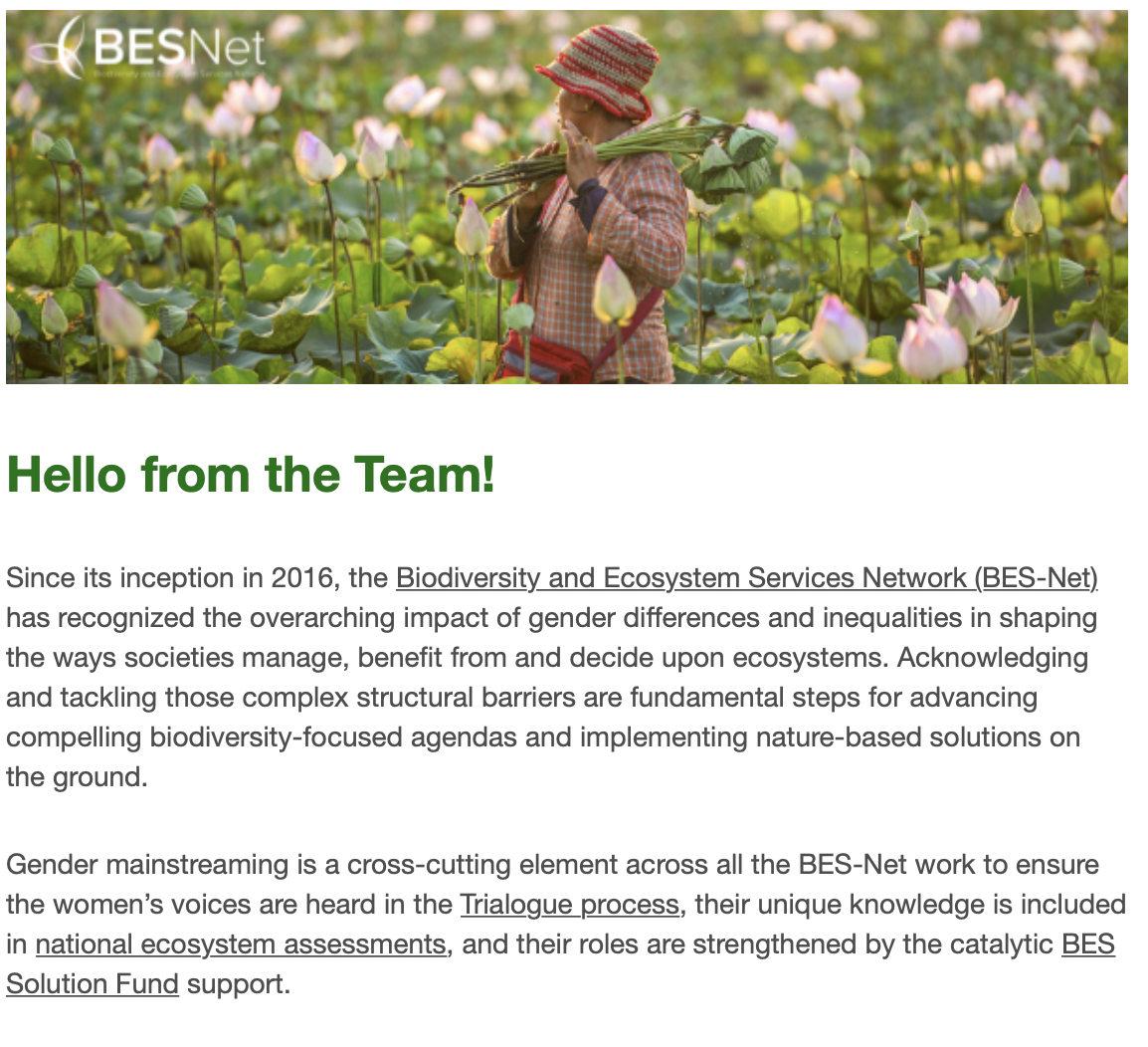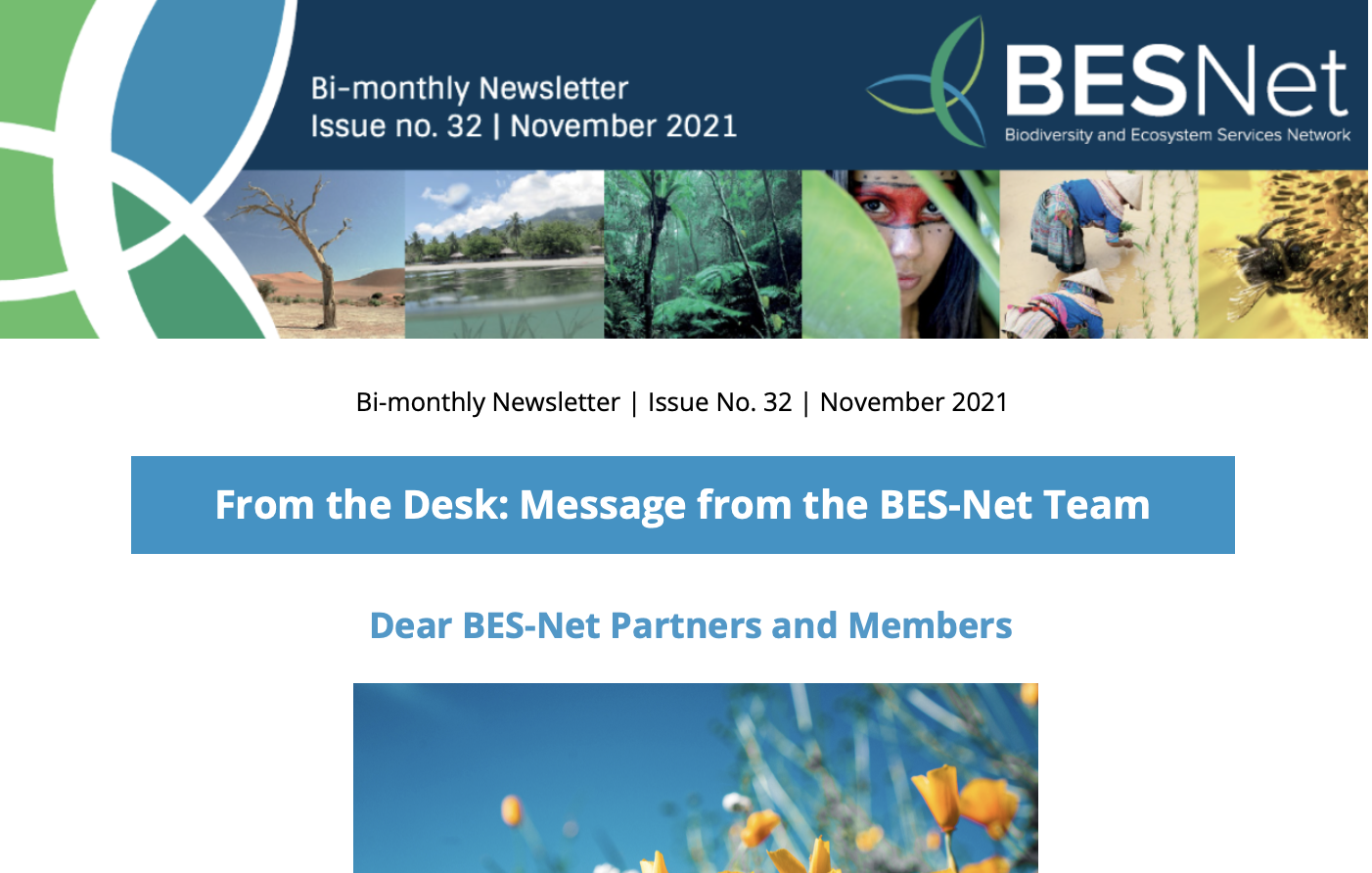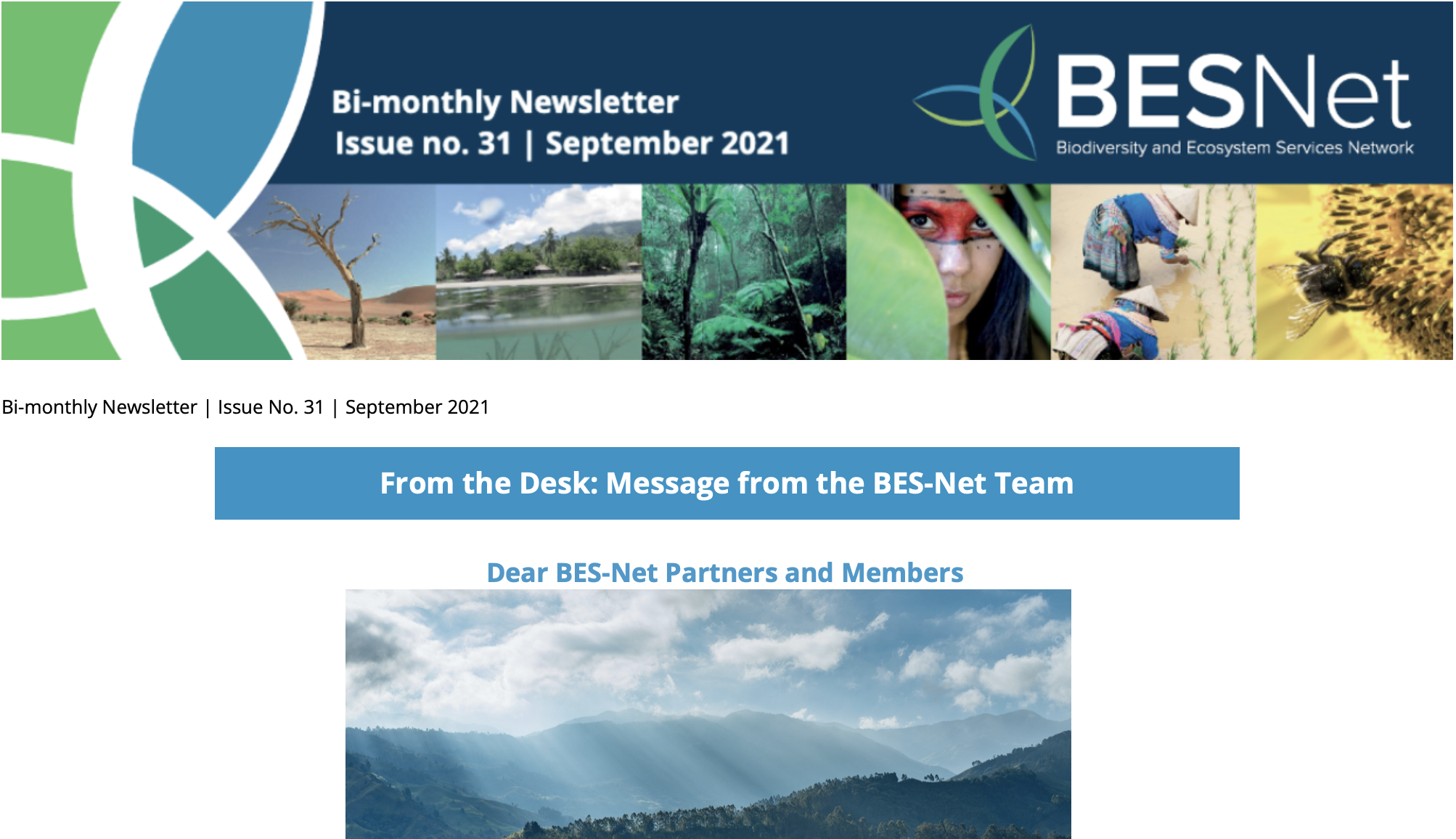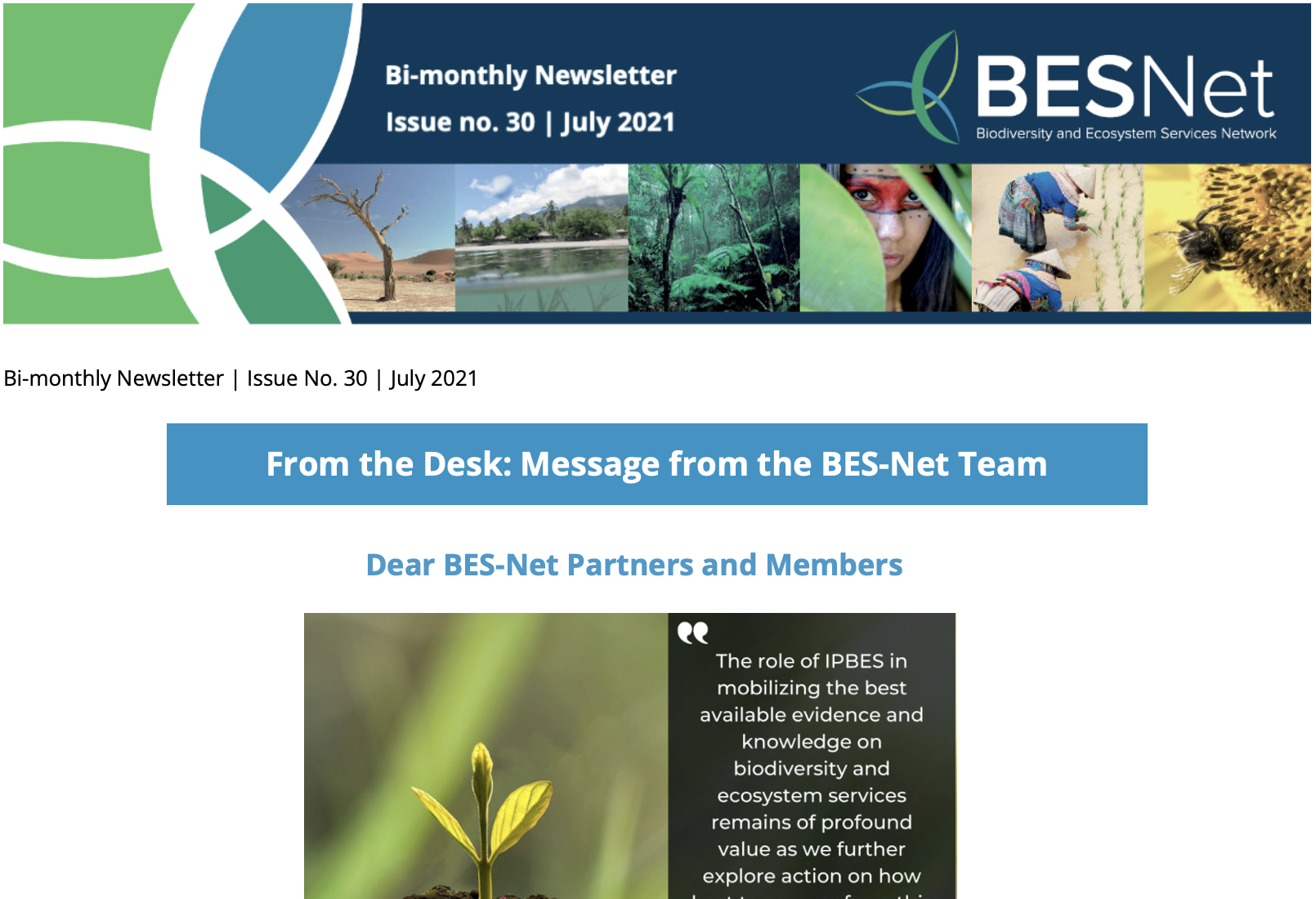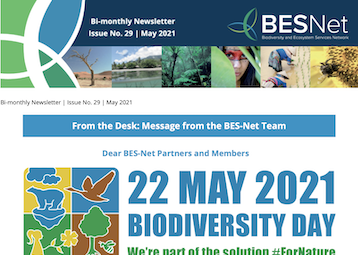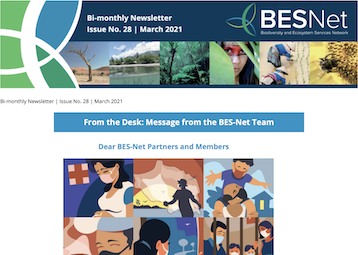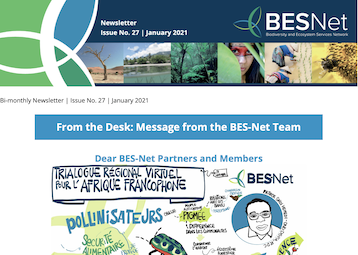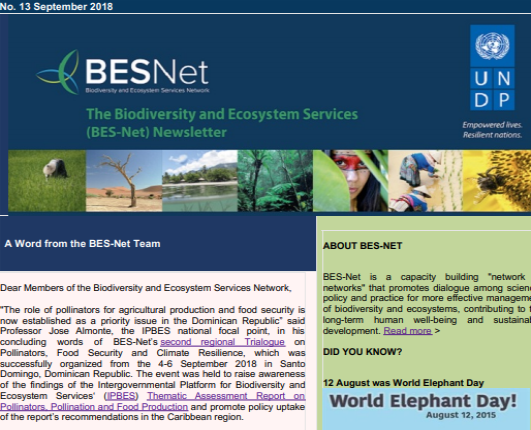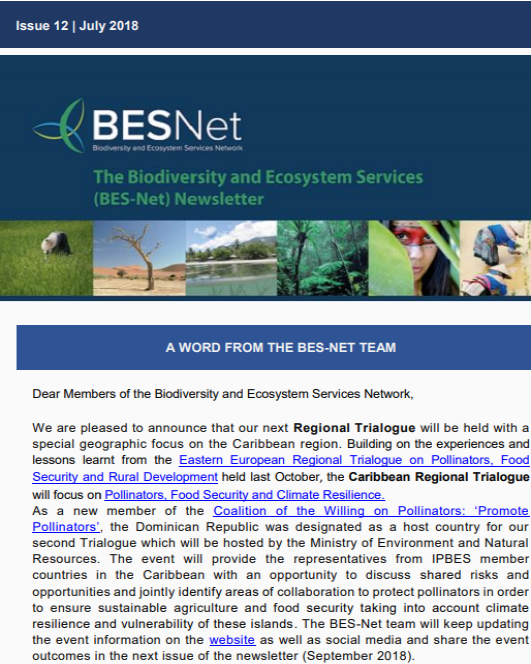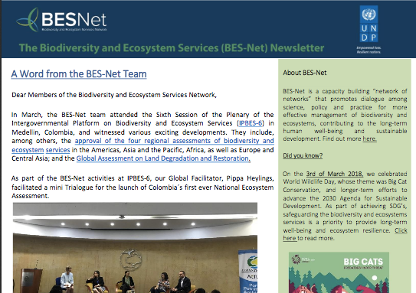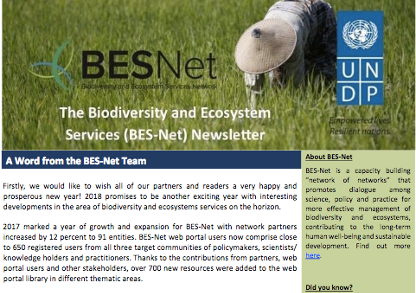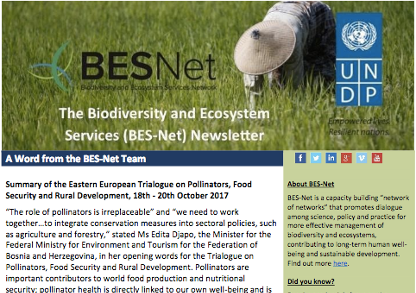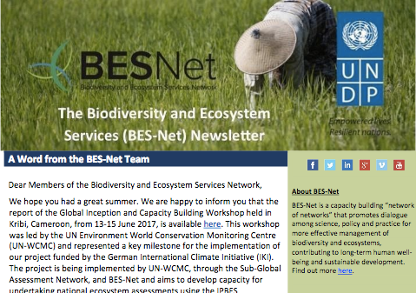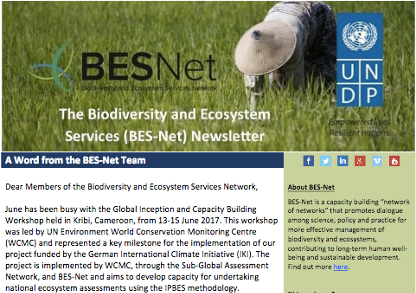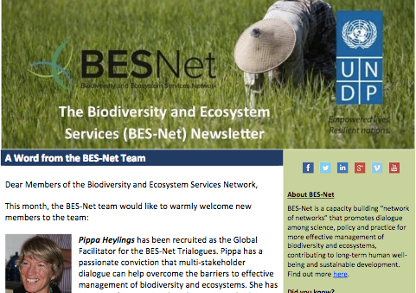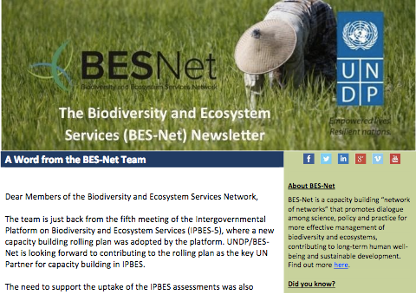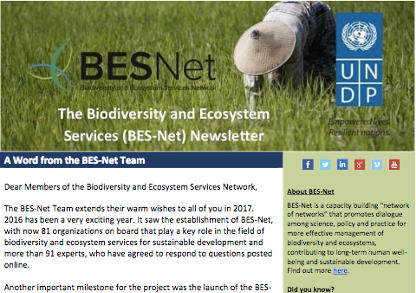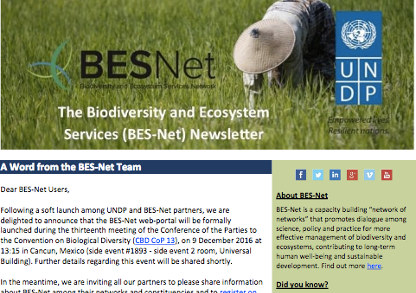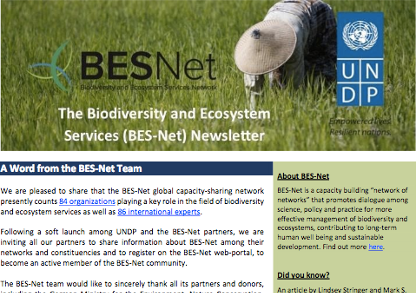| No. 15 – January 2019 | |||
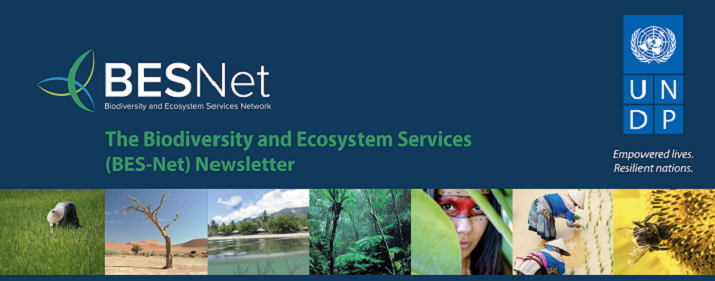 |
|||
| A Word from the BES-Net Team |
|
||
|
|||
|
Science – Policy – Practice Discussion: Insights from David Duthie |
|||
|
Squeezing food into a (planetary) doughnut
Agriculture, and food, remains one of the biggest negative impacts on wild biodiversity, in addition to being a major contributor to climate change and is, perhaps, the most difficult one to reverse. Nothing makes this clearer than the report of the EAT-Lancet Commission on Food, Planet, Health, a 3-year project that brought together 37 experts from 16 countries with expertise in health, nutrition, environmental sustainability, food systems, economics and political governance.
Tamara Lucas and Richard Horton of The Lancet have written a short 2-page commentary which opens, “Civilisation is in crisis. We can no longer feed our population a healthy diet while balancing planetary resources. For the first time in 200,000 years of human history, we are severely out of synchronisation with the planet and nature. This crisis is accelerating, stretching Earth to its limits, and threatening human and other species’ sustained existence. The publication now of “Food in the Anthropocene: the EAT–Lancet Commission on healthy diets from sustainable food systems” could be neither more timely nor more urgent.
The 47-page main report, and a 28-page summary report, also available in Arabic, Chinese, French, Indonesian, Russian and Spanish is published this month.
The report firmly places much of the blame for our collective inability to transform our food systems on a lack of global evidence-based targets and much of the Commission’s work has been distilled down to a reference healthy diet of 2500 kcal/day (see page 5 or 10 of main/summary report)
Comparison of the reference healthy diet with my own was a sobering thought experiment (yes, no alcohol allowance), but nicely illustrates the many incremental personal, and societal, required changes underlying every exhortation to “radically transform”, so as to stay within planetary boundaries and inside Kate Raworth’s doughnut.
|
|||
|
Highlights from BES-Net Partners |
|||
| IPBES signs Memorandum of Cooperation with United Nations Convention to Combat Desertification (UNCCD) (planetary) doughnut by IPBES
On 18 January 2019, IPBES Executive Secretary Anne Larigauderie and United Nations Convention to Combat Desertification (UNCCD) Executive Secretary Monique Barbut signed a cooperation agreement as a crucial step to greater collaboration. The purpose of the Memorandum of Cooperation is to promote cooperation between the Parties with respect to mutually relevant aspects of the activities conducted in the framework of the Convention and IPBES, with a view to promoting synergies between, avoiding overlaps and unnecessary duplication of, and ensuring effective cooperation on, such activities. Read more=>
|
|||
| “Living with bees”: Indigenous landscape management supports pollination by Swedbio
A “Dialogue across Indigenous, local and scientific knowledge systems reflecting on the IPBES Assessment on Pollinators, Pollination and Food Production” took place 21 – 25 January 2019 in the Karen community of Hin Lad Nai, Chiang Rai, Thailand, as part of the ongoing process of dialogues that seeks ways of working and co-producing knowledge across Indigenous, local and scientific knowledge systems based on equity, reciprocity and usefulness for all involved, with a Multiple Evidence Base approach. The event was co-convened by SwedBio and Stockholm Resilience Centre, the Indigenous organizations PASD and IMPECT, and UNESCO, with the Karen Indigenous community of Hin Lad Nai as a critical contributor and local host. Read more=>
|
|||
| Solutions in Focus: New solution in Focus brochures by GRID Arendal
GRID Arendal, a PANORAMA partner, has released several brochures from the ‘Solutions in Focus’ series of PANORAMA case studies, inspiring replicable solutions across a range of conservation and sustainable development topics. While ‘Investing in Coral Reefs’ focuses on the role of sustainable conservation finance in protecting coral reefs, the ‘Blue Economy’ focuses on successful blue economy initiatives for restoring or maintaining the integrity and productivity of marine and coastal ecosystems. If you want to know about Panorama solutions. Read more => |
|||
| Promoting business engagement solutions and welcoming UNDP to the partnership by PANORAMA
PANORAMA, a partnership of seven conservation and development organizations, with the aim of promoting specific solutions to local and regional challenges, has rounded up a successful 2018: 107 curated “solution” case studies were published covering a diverse range of issues, including protected area financing, ecosystem-based adaptation and organic agriculture, among others. A new “thematic community” on “Business Engagement” profiles good-practice examples of civil-society organizations working with the private sector for biodiversity outcomes. UNDP joined as co-coordinator of the “Protected Areas” theme and will document solutions from its vast project portfolio. Read more => |
|||
| CEBios granted funding by the SCBD Bio-Bridge Initiative by CEBios
The CEBioS, a programme of the Royal Belgian Institute of Natural Sciences (RBINS), and its partners in Benin, the Institut de Recherches Halieutiques et Océanologiques du Bénin (IRHOB) and the University of Abomey-Calavi (UAC), are granted funding from the SCBD Bio-Bridge Initiative (BBI). The overall objective of this project is to foster long-term cooperation between the 3 institutions on the development of a methodology to acquire reliable scientific data for rational management and conservation of aquatic resources in Benin, using sound scientific, technical, and socio-economic advice. This cooperation project proposes to manufacture Arduino sensors in order to measure physicochemical water quality parameters, such as temperature, salinity, acidity and dissolved oxygen, of the marine and the lacustrine environment around Cotonou in Benin. Data collection will constitute the first step toward constructing habitat suitability maps. The BBI aims at promoting technical and scientific cooperation to support the implementation of the Strategic Plan for Biodiversity 2011-2020 and the achievement of its Aichi Biodiversity Targets. Read more > |
|||
| Launch of the first Brazilian Thematic Assessment on Pollination, Pollinators and Food Production by BPBES by BPBES
The Brazilian Platform on Biodiversity and Ecosystem Services (BPBES) is happy to announce the launch of the Thematic Report on Pollination, Pollinators and Food Production on the 6th of February 2019! Produced in partnership with the Brazilian Network of Interactions Plant-Pollinator (REBIPP), this report will be the first of its kind produced in the country and the first ecosystem service approached as a thematic report in the context of BPBES. Stay tuned for more info here =>.
|
|||
| BIOFIN’s 2018 Workbook available by BIOFIN
BIOFIN launched its 3rd edition of the innovative methodology for countries to develop a comprehensive biodiversity finance plan. The Workbook includes cutting edge guidance for practitioners, budget makers and policymakers and includes detailed information on implementing finance solutions. Download the full Workbook here =>.
|
|||
|
Courses and Webinars |
|||
|
IPBES Web conference on Land Degradation and Restoration Knowledge Gaps and Needs
The web conference on Land Degradation and Restoration Knowledge Gaps and Needs is an opportunity for a broad spectrum of experts, knowledge holders and practitioners to collaborate, to inform the work of IPBES and catalyse further knowledge generation via interactive web-based forum discussions and webinar presentations. |
|||
|
BIODIVERSITY FINANCE MOOC in 4 languages (ENG, FR, SP, RU)
This free seven-week MOOC provides you with the tools to assess the policy, institutional, and economic context for biodiversity finance; conduct a financial needs assessment to achieve a country’s biodiversity goals and develop a biodiversity finance plan that identifies the most suitable finance solutions. This course will teach you how to develop financially sound and politically feasible biodiversity finance plans. The course is available in English, French, Spanish and Russian, and will run from 15 April to 31 May 2019.
|
|||
|
São Paulo School of Advanced Science offers a course on Scenarios and Modelling on Biodiversity and Ecosystem Services to Support Human Well-Being (SPSAS Scenarios) The Brazilian Platform on Biodiversity and Ecosystem Services (BPBES) and the InterAmerican Institute for Global Change Research (IAI) is organizing a course on Scenarios and Modelling on Biodiversity and Ecosystem Services for human well-being from 01 to 14 July 2019, in São Pedro/SP, Brazil. Sponsored by the São Paulo State Research Foundation (FAPESP), this course will provide graduate students with advanced knowledge and practice in the area of scenarios and modelling in biodiversity and ecosystem services and help build professional capacity to use the results of IPBES policy support tools and methodologies for scenario analysis and modelling of biodiversity and ecosystem services assessment. The application deadline is 20 February.
|
|||
|
The Equator Initiative announces a global call for nominations for the Equator Prize 2019
|
|||
|
Upcoming Events |
|||
|
The fourth session of the UN Environment Assembly (UNEA-4) 11 – 15 March 2019 Nairobi, Kenya The 2019 UN Environment Assembly will contribute towards a holistic, inclusive, and participatory approach to development that is underpinned by human rights and recognizes the interlinkages and integrated nature of the 2030 Agenda and the Sustainable Development.
PRESS RELEASE: India hosts the next UN conference on land degradation 7 – 18 October, 2019, New Delhi, India India will host the next global Conference on desertification, land degradation and drought from 7 to 18 October 2019 at the Vigyan Bhavan conference centre in New Delhi. Participants from 197 Parties to the UNCCD will have access, for the first time to Earth Observation data on the trends in land degradation dating from 2000, gathered from 120 of the 169 countries affected by desertification. Ahead of COP14, government representatives gathered for a preparatory meeting from 28-30 January in Georgetown, Guyana, for the seventeenth session of the Committee for the Review of the Implementation of the UNCCD (CRIC 17).
|
|||
|
Jobs, Internships and Other Opportunities |
|||
|
Scientific Officer Technical Support for IPPES assessment os sustainable use of wild species (Perols, France)
Programme and Partnerships Manager, Drylands, Innovations (Nairobi, Kenya)
Field Coordinator – Marine biodiversity (Sint, Maarten)
** Browse more employment opportunities in the field of biodiversity and ecosystem services on BES-Net web portal** |
|||
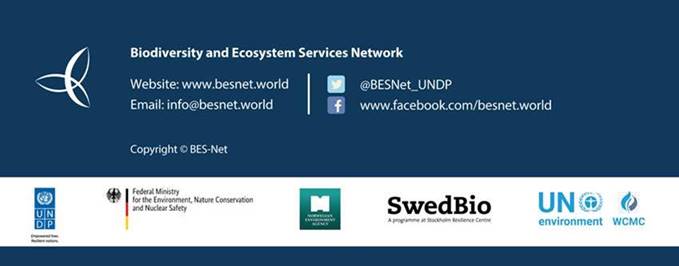 |
|||
BES-Net Newsletter – No. 15. January 2019
Related Newsletters
BES-Net Newsletter Issue 21 January 2020
Bes-Net Newsletter – No. 19. September 2019
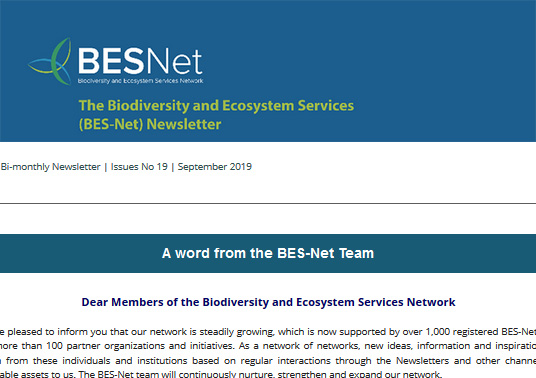
Bes-Net Newsletter – No. 18. July 2019
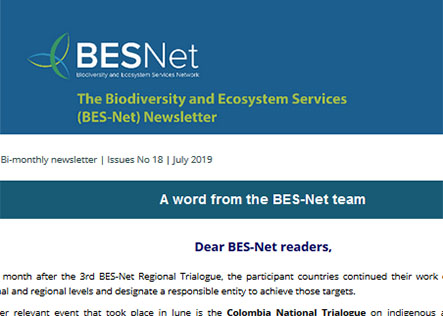
Bes-Net Newsletter – No. 17. May 2019
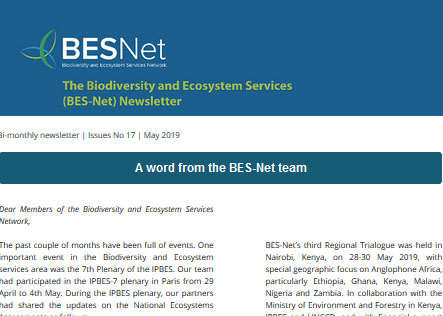
Bes-Net Newsletter – No. 16. March 2019
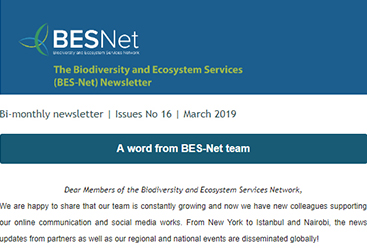

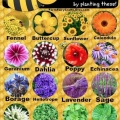
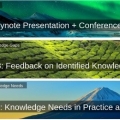
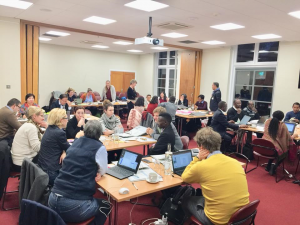
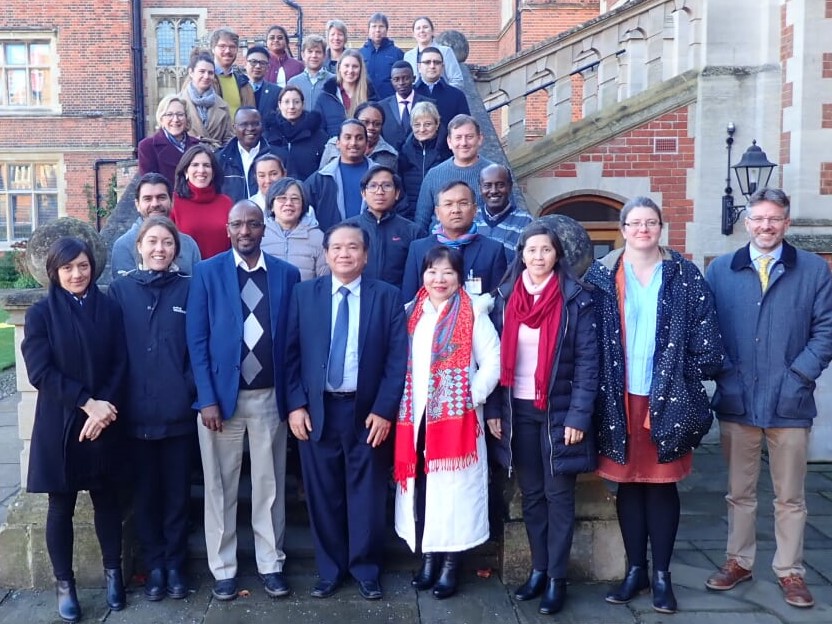
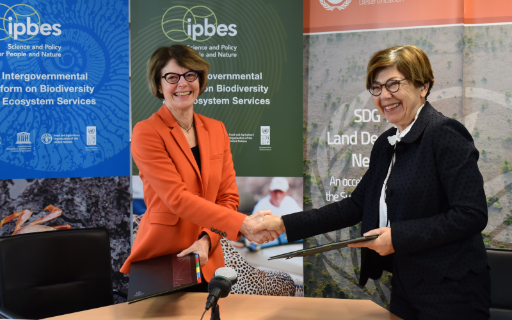
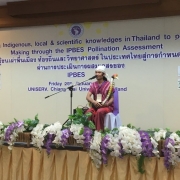
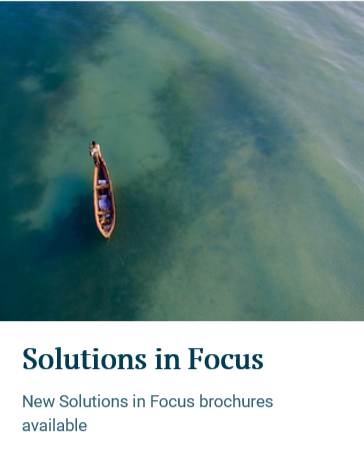

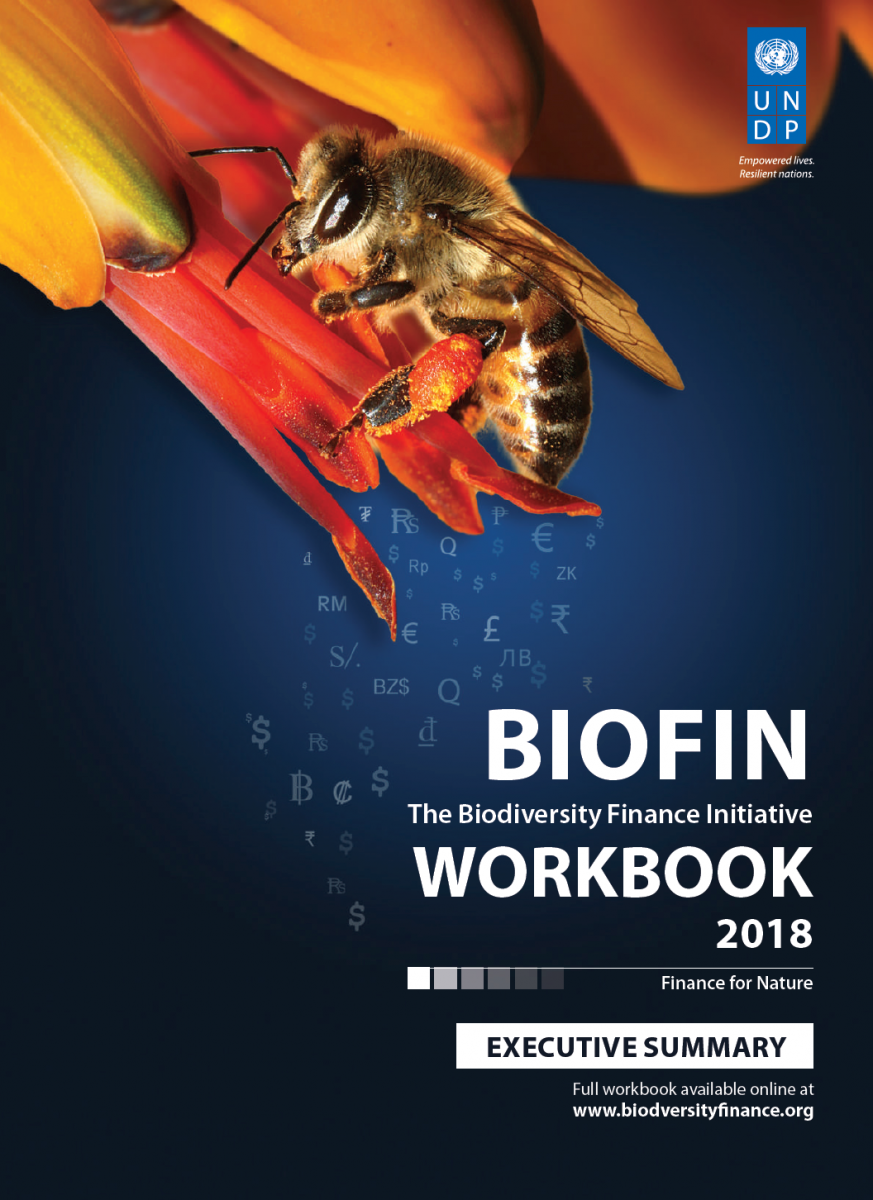

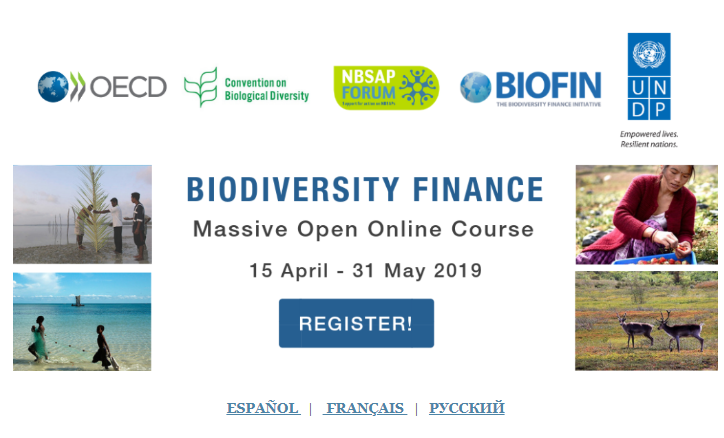
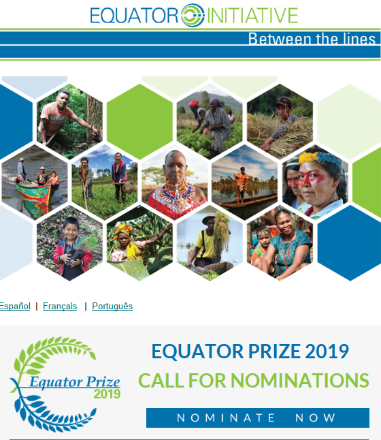 This year’s prize will be awarded to outstanding community and indigenous peoples’ initiatives that advance nature-based solutions to climate change and for sustainable development. To access the online nomination system, please visit
This year’s prize will be awarded to outstanding community and indigenous peoples’ initiatives that advance nature-based solutions to climate change and for sustainable development. To access the online nomination system, please visit 